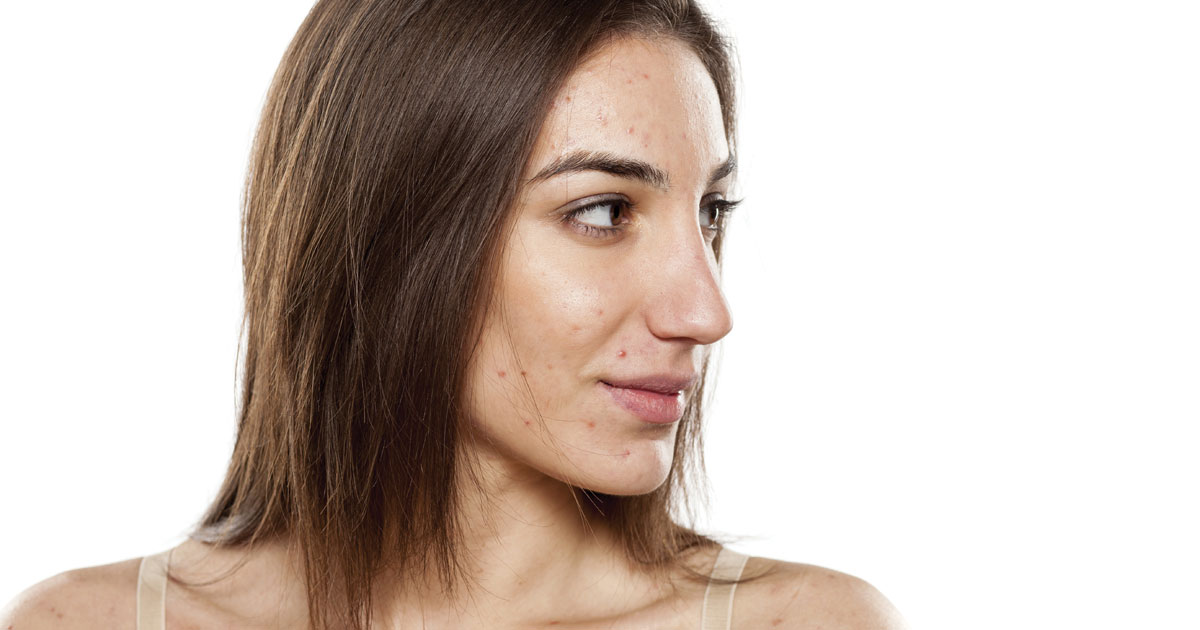BY JAMIE LOBER
Acne is caused by overactive glands in the skin. The skin makes an oil called sebum, and when there is too much sebum, the pores get clogged, and you have acne, sometimes referred to as pimples. In young women, hormones and the menstrual cycle may be to blame. Typically women notice acne on the face, back, neck and shoulders. The U.S. Department of Health & Human Services said it is the most common skin disease. This means if you are struggling, you are not alone. The American Academy of Dermatology reported that about 40 to 50 million Americans have acne at any one time. It can happen at any age. Sometimes it happens to young girls and goes away, while other times it can show up for the first time at 30 or 40. Everybody is different.
You may have heard that poor hygiene causes acne, but that is not the reality. If you wash too frequently, it can be hard on your skin and make acne worse, but that is not the cause. You may have heard that chocolate or a poor diet can cause acne, but there is no evidence to show that is true either. A balanced diet is not meant specifically for acne prevention but rather for good general health. It is also a myth that stress can contribute. The opposite is true, such that acne can cause stress. The U.S. Department of Health & Human Services listed some common causes including:
- Hormone changes during puberty
- Hormone changes as an adult
- Medicines for depression or epilepsy
- Makeup
- Pressure or friction like from a backpack
- Family history
The first thing you want to do is confirm that your diagnosis is in fact acne and not something else. This means scheduling an appointment with a board-certified dermatologist who can examine your skin, grade the acne with one being mild and four being severe and determining the type you have.
Fortunately, acne is easy to get rid of if you take the appropriate steps. There are some actions you can take to clear up your skin including:
- Wash your face with water and mild cleanser twice a day and after sweating
- Avoid products that dry or irritate your skin
- Do not scrub or pick at your skin
- Always be gentle and use alcohol-free products
- Rinse with lukewarm water
- Shampoo regularly
- Stay out of the sun and do not go to tanning beds
- Do not touch your face
- Talk to your doctor and consider medications that can address concerns
The American Academy of Dermatology said that there are some mild products you can try without a prescription, such as those that contain benzoyl peroxide or salicylic acid. Remember that results do not appear overnight, so you have to be patient. Once the acne has cleared, it is smart to continue treatment as a means of prevention. Sometimes women are given antibiotics to kill bacteria and reduce inflammation. Another option is birth control pills that help manage the hormones causing the problem.
The American Academy of Dermatology said that in some cases, procedures are considered. Some popular options include:
- Lasers and light therapies
- Chemical peels for blackheads and papules
- Drainage and extraction for large acne cysts that do not respond to medicine
Though acne is not a serious health issue, it is worth addressing. The philosophy that time will heal acne may apply to some women though there is no reason to wait when effective treatments are available. Women experience negative effects from having acne such as:
- Low self-esteem
- Poor body image
- Depression
- Permanent scarring
- Shyness
- Embarrassment
There is no reason to suffer when the condition is preventable or manageable.


















